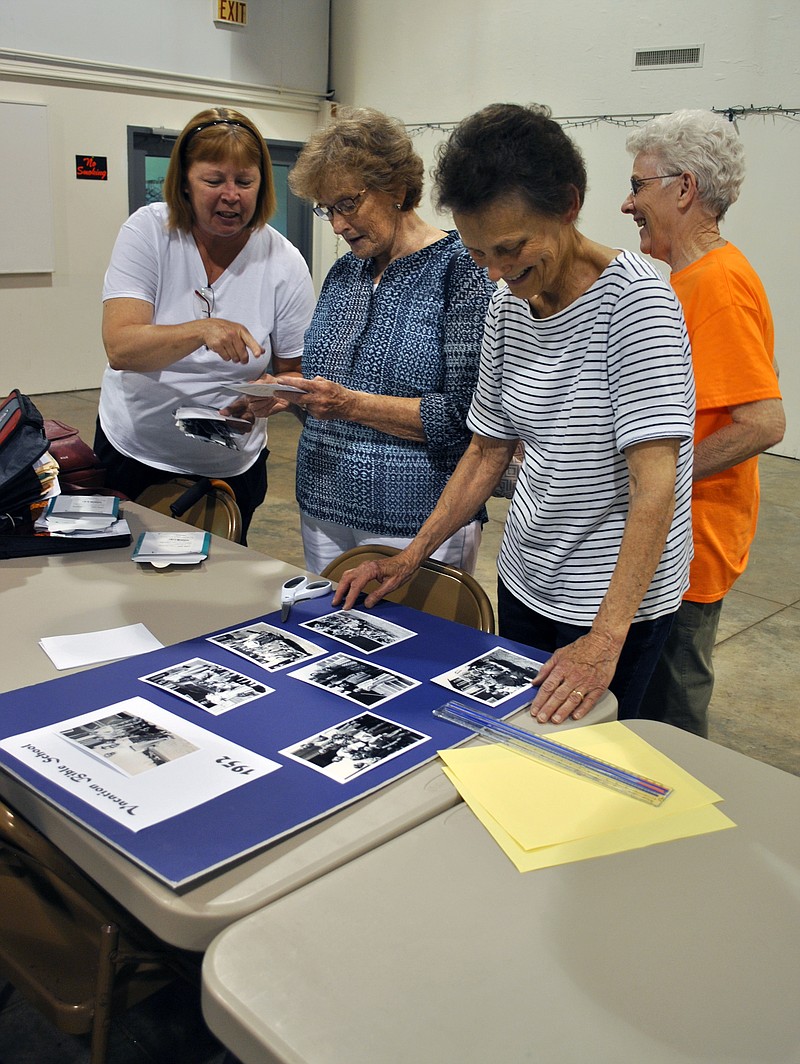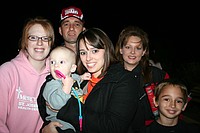Longtime Elston residents and natives will share stories and history of the town's county farm, railroad station, canning factory, Cole County's last functioning one-room school and more June 19 during the Cole County Historical Society's first 2018 Getting to Know Your Communities series program at First Baptist Church of Elston's activity building.
A program that has highlighted Cole County communities - including Lohman, Taos, Russellville, Centertown and Honey Creek the past four years - has seen increased popularity, program committee co-chairman Leah McNay said.
The committee contacted a group of Elston residents and natives this spring about featuring Elston in the 2018 series, which will include similar programs in Osage Bend and Zion July and August.
That group has worked hard with McNay and committee members Darrell Strope and Quentin Wade - a society historian, committee member and Elston native - to research history, gather information and decide what to present.
Some of those Elston contributors had worked on a 190th anniversary celebration and historical display last August for the very church that will host the upcoming program, including Janice Roush and Carolyn (Surface) Nichols. Taking much of that information to create a display outlining the history of First Baptist Church, the pair also delved into other pieces of history in the town from the direction of the program committee.
Photo Gallery
Boo at the Zoo
One night at the Little Rock Zoo's special Halloween trick-or-treating event.
"They told us about what people attending these programs before were interested in, such as any businesses that were in the town, the people who lived there, churches, schools," Roush said. "Carolyn already had a lot of that gathered."
An Elston native, Nichols has quite a collection of pictures, Census records and many other important artifacts of Elston, contributing to an article published about her stomping grounds in the '90s.
Ten miles west of Jefferson City on Gray's Creek, Elston was settled in 1828 by Andrew McCarthney Elston, a state politician, Nichols said. A.M. Elston bought a large tract of land in Marian township, 3 miles from the Missouri River. In 1857, he granted the Missouri Pacific Railroad a right of way through his land for which the railroad established a station and trading post, giving it the name Elston Station.
Elston native Linda Harrison contributed old photos of the Elston Station after finding them on an adventure in her early adulthood with her sister. They were running through the woods and came upon a log cabin near the railroad tracks, explored the structure and discovered the photos in its cellar. The station, made from an old railcar, shows the town's near halfway distance between St. Louis and Kansas City, as its signs with mileage indicate.
"A post office was established in 1858. Elston was a post office address for the farms around the area and the parish of the St. Martins Catholic Church, which was sometimes referred to as the Elston Catholic Church," she said. "The town of Elston was surveyed in 1867 and the streets laid out and named."
When Nichols was younger living in her hometown, she would visit about 40 houses collecting Census information for about 110 individuals at that time. Nichols and many of Elston's residents remember interesting tidbits including the county's last-functioning one-room schoolhouse and the county farm.
County farms, also known as alms houses or poor farms, housed low-income individuals and families, providing them with ways to earn money, housing and food. Some residents, like Nichols and Wade, remember these farms and stories of them helping supply crops to the canning factory in Elston, which started in the Civil War and burned down before many of the program's contributors were born.
"There were a lot of children, young people and some that had mental illnesses," she said. "I also found out a lot about how the county farms were handled through the years and their overall history in the United States."
Other displays will include pictures from the church's vacation Bible schools, information about notable people in the town and artifacts such as pieces of galena - or lead - which was mined along with coal in the Elston area.
With doors opening at 6 p.m., guests to the June 19 event can view these displays before the program begins at 7 p.m. Strope will act as the master of ceremonies, with Gipfin and Nichols speaking on different aspects of the town's history. Wade will talk about the area's early settlers, a nearby Aztec Indian mound, and the influences the railroad and highways had on boosting Elston's township, business and population. The discussion then will open for visitors to share their memories of Elston and ask questions.
"Young people don't realize things that have happened where they live. I think it is important to remember the past and let them know so future generations can keep that history alive," Roush said.
Guests to the program are encouraged to bring old photographs, memorabilia, scrapbooks, family histories and stories to share. The program is free and open to the public.
For more information, contact the Cole County Historical Society at 573-635-1850.


